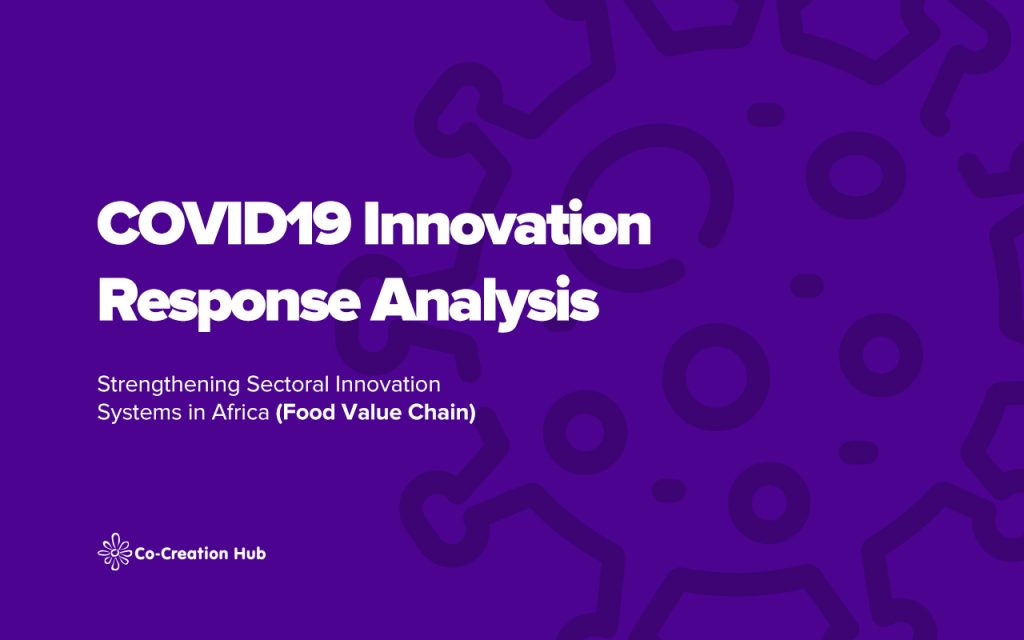
The COVID-19 pandemic demands a significant shift in how we live, work, and socialize. It has therefore made it necessary for society to prioritize innovation to meet immediate challenges caused by the pandemic. The ensuing response is also producing inspiring innovative solutions, catalysing the use of digital technologies, proving that necessity is indeed the mother of invention.
Between June and August 2020, we conducted a deep dive into sectors on the African continent that have been significantly affected by the impact COVID-19 using a 5-step sectoral approach analysis. This approach provided a mechanism to identify the challenges associated with the pandemic, review interventions and innovations in the select countries, and measure how these interventions were supported, compared to the strength of the sectoral innovation systems in each of the countries.
The 5-step sectoral approach analysis compiled insights from key stakeholder interviews, desk research, Twitter sentiment analysis, and a qualitative survey. The analysis covered Egypt, Kenya, Nigeria, Rwanda, Senegal, and South Africa.
More about our methodology and approach can be found here.
The COVID-19 pandemic is exacerbating food insecurity in Africa as lockdown measures have disrupted internal supply chains undermining the capacity of both short-term production and distribution. The UN World Food Programme estimates that by the end of 2020, the COVID-19 pandemic might increase the number of food-insecure people by 135 million, bringing the total to 265 million people in Africa. The challenge for Africa, during and after the COVID-19 crisis is to mitigate the immediate impacts and to accelerate a more rapid transformation of the food system.
Here are some of the innovations in the food value chain sector that private, public and international institutions resorted to as a result of the pandemic:
Kenya:
- A Kenyan social enterprise, Mkulima Young, has developed an app called Mkulima Young Market. Buyers place orders on the app and farmers who are signed up on the app deliver the orders. To use the app, farmers are required to register themselves and what they are selling.
- With limited access to finance and supply chain of food and other essentials disrupted, people living in In Kenya’s informal settlements are struggling to access food and other essentials. Sarafu Credit is using a block-chain–backed system of community currencies (credit vouchers) that communities in informal settlements can use to purchase food and other essentials. They also provide food parcels (Source).
The World Bank is leveraging digital technologies through ongoing partnerships with 15 AgTech startups to transform the delivery of inputs, soil testing, crop insurance, credit, extension advice and market linkages, to enable farmers to overcome temporary COVID-related constraints and ensure better targeting and more effective service delivery especially in remote areas in the long run (Source).
Read the full article here.
